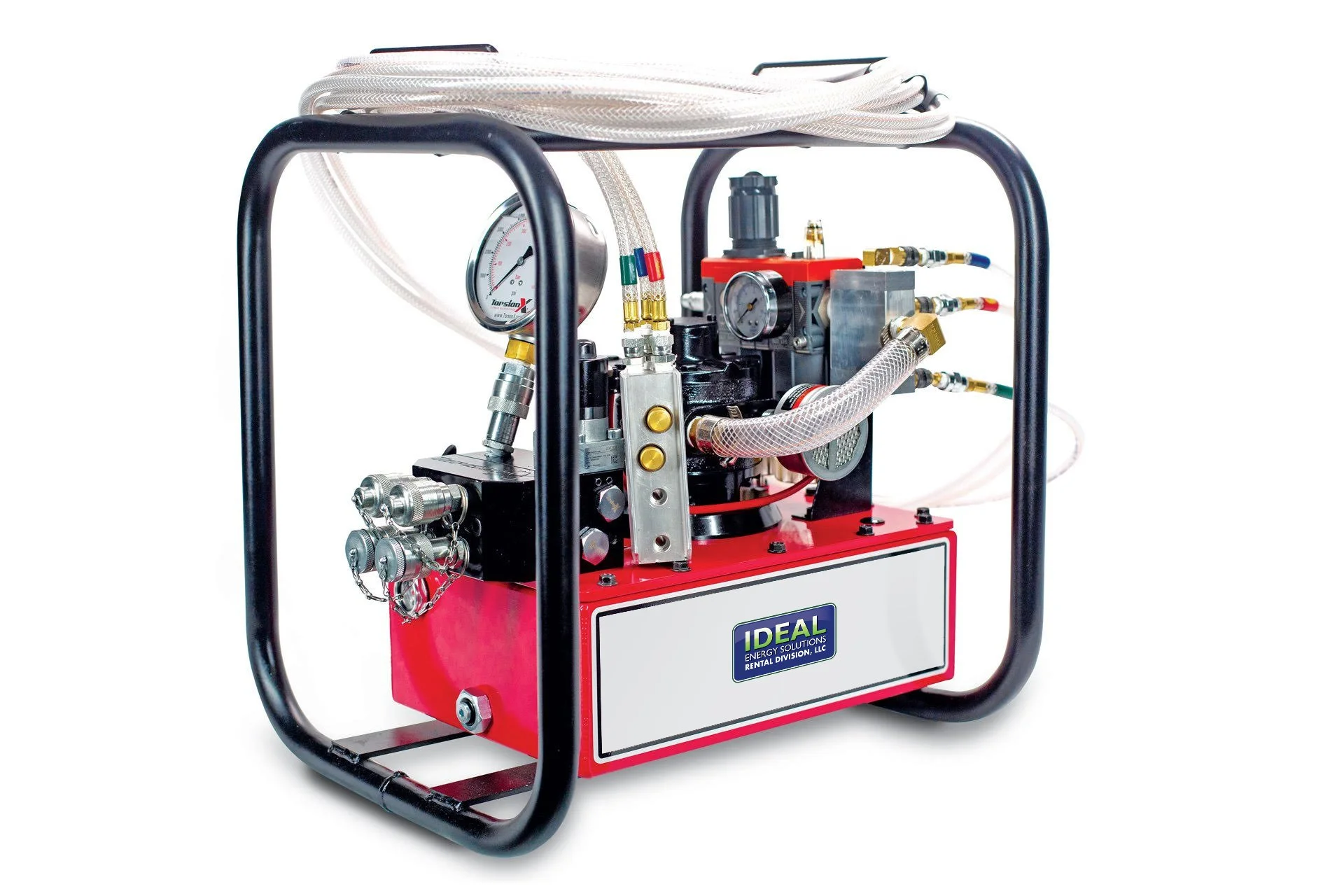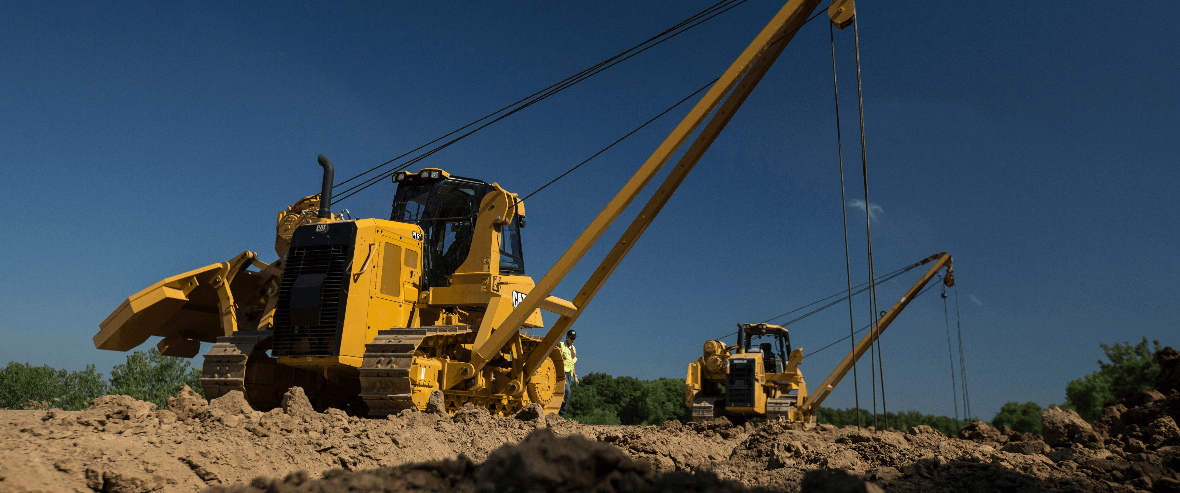A Comprehensive Overview to the Various Kinds Of Oil Field Equipment and Pipeline Equipment Available
The oil and gas market counts greatly on specialized equipment for reliable removal and transportation. Various kinds of machinery, from drilling rigs to tank, play crucial roles in this intricate process. Each piece of devices offers distinctive features that add to general functional success. Understanding these components is crucial for any person associated with the industry. As the industry develops, so also do the technologies that sustain it. What innovations are on the horizon?

Drilling Rigs: The Foundation of Oil Expedition
Drilling rigs serve as the crucial equipment in the domain of oil exploration, enabling business to gain access to hydrocarbon books hidden deep under the Earth's surface. These rigs can be found in various kinds, consisting of land rigs, offshore rigs, and mobile devices, each created to operate in details settings. Outfitted with advanced modern technology, drilling rigs can penetrate geological formations with precision, making certain reliable resource removal. The structural integrity and operational capacities of these rigs are critical, as they must stand up to extreme conditions and significant stress. Moreover, the selection of an exploration rig affects the total job price and timeline, making it an essential factor to consider for oil companies seeking to enhance their exploration efforts and maximize efficiency in their operations.
Pumps: Vital for Fluid Movement
In the oil extraction process, the role of pumps is considerable, facilitating the activity of liquids throughout various stages of production. Pumps are necessary for carrying petroleum, water, and various other liquids from underground storage tanks to the surface area and after that with pipelines to refineries. They come in various kinds, including centrifugal, positive variation, and submersible pumps, each serving details purposes based upon the fluid qualities and operational requirements. Centrifugal pumps are generally utilized for their performance in high-flow applications, while favorable variation pumps succeed in managing thick liquids. The selection of pump effects overall efficiency, functional security, and maintenance costs. Appropriate selection and maintenance of pumps are important for optimizing production and reducing downtime in oil area operations.
Valves: Managing Flow and Pressure

Valves play an essential role in handling the circulation and stress of fluids within oil fields and pipes. Various kinds of shutoffs serve distinct applications, each developed to accomplish particular features essential for effective procedure - Superior Rentals fusion machines. Understanding the features and uses these shutoffs is crucial for enhancing system efficiency and safety and security
Sorts of Valves
Essential elements in oil field operations, valves play an important function in managing the flow and stress of liquids within pipes and tools. Various types of valves are made use of to fulfill the diverse requirements of oil and gas manufacturing. Common types consist of entrance shutoffs, which offer a straight-line flow and minimal stress decrease; world valves, recognized for their strangling capabilities; and sphere shutoffs, identified for their fast on/off control. In addition, check valves prevent heartburn, while butterfly valves use a light-weight solution for controling circulation. Each shutoff type is made with certain products and configurations to endure the extreme problems usually located in oil fields, ensuring integrity and effectiveness in operations. Comprehending these types is crucial for efficient system monitoring.
Valve Applications and Features
While different sorts of valves offer distinctive functions, their main applications focus on controlling circulation and pressure within oil and gas systems. Shutoffs such as entrance, world, and sphere valves regulate liquid activity, making sure peak efficiency and safety and security. Gateway shutoffs are typically used for on/off control, providing marginal flow resistance. Globe valves, on the other hand, deal precise circulation regulation, making them appropriate for strangling applications. Sphere shutoffs are preferred for their quick procedure and limited sealing capabilities. Furthermore, stress alleviation shutoffs are critical for protecting against system overpressure, safeguarding equipment integrity. On the whole, the proper selection and application of shutoffs boost operational efficiency, guaranteeing the dependable transport of oil and gas through pipelines and processing facilities.
Compressors: Enhancing Gas Transport
Compressors play an essential role in the reliable transport of gas, making certain that it relocates smoothly via pipelines over cross countries. These tools enhance the pressure of all-natural gas, allowing it to get over rubbing and altitude changes within the pipeline system. Furthermore, compressors help with the harmonizing of supply and demand, accommodating changes in intake and manufacturing prices. Numerous kinds of compressors are used in the sector, including centrifugal, reciprocating, and rotary screw compressors, each offering distinctive advantages based on the operational needs. Normal upkeep of these compressors is crucial to make best use of performance and minimize downtime, inevitably adding to a dependable gas transportation network. Their important function emphasizes the value of compressors in the total oil and gas framework.
Storage Tanks: Safe and Efficient Fluid Monitoring
Reliable transportation of all-natural gas counts on different support group, among which is the correct administration of tank. These tanks play a click for more vital duty in securely consisting of liquids, ensuring that operational efficiency is maintained while reducing ecological risks. Built from long lasting products, they are created to stand up to high pressures and corrosive elements. Properly sized and purposefully situated, tank help with the smooth flow of all-natural gas and various other fluids, avoiding bottlenecks in supply chains. Normal upkeep and monitoring are vital to discover leaks or architectural problems, promoting safety and security and conformity with regulative standards. Inevitably, the efficient management of storage space tanks is critical for the total stability and reliability of the oil and gas market's fluid handling systems.
Pipeline Equipments: Facilities for Transport
Pipeline systems act as the backbone of the oil and gas market, facilitating the reliable transportation of hydrocarbons over substantial distances. These systems are composed of different parts, including pipelines, valves, pumps, and compressors, all diligently created to assure seamless circulation. The materials made use of in pipeline construction, usually steel or high-density polyethylene, are selected for longevity and resistance to rust. Pipeline networks can span across land and water, attaching production sites to refineries and warehouse. Furthermore, progressed technology allows real-time surveillance of flow rates and stress degrees, enhancing operational effectiveness. The critical placement of these pipelines lessens ecological impact while maximizing resource availability, therefore playing an important function in conference power needs globally.
Safety Equipment: Making Sure Employee and Environmental Defense
The procedure of pipeline systems, while important for energy transportation, likewise offers substantial safety and security challenges for employees and the environment. Security devices plays a considerable function in alleviating these threats. Individual safety devices (PPE) such as headgears, handwear covers, and non-slip shoes safeguards employees from physical dangers. Furthermore, gas detection systems keep track of for leaks, guaranteeing that damaging compounds do not position a risk to workers best main sewer line cleaner or the surrounding ecosystem. Emergency closure systems are imperative for quickly stopping procedures during a crisis, avoiding potential calamities. Spill control materials, including absorbents and obstacles, are basic for lessening environmental impact. On the whole, spending in all-inclusive safety equipment is essential for keeping operational integrity and shielding both workers and the environment in the oil and gas field.

Often Asked Inquiries
How Do I Select the Right Oil Field Equipment for My Task?
Choosing the best oil area tools entails assessing task specs, budget plan restraints, and functional demands. Consider elements such as equipment integrity, compatibility with existing systems, and the provider's track record to ensure peak efficiency and safety and security.
What Are the Upkeep Requirements for Oil Field Equipment?
Maintenance requirements for oil field equipment include routine assessments, lubrication, and prompt repair services. Operators needs to additionally abide by manufacturer guidelines, monitor efficiency metrics, and warranty conformity with safety and security laws to boost long life and performance.

How Can I Make Sure Compliance With Environmental Rules?
To ensure conformity with environmental laws, business must carry out regular audits, carry out best methods, buy training, preserve proper paperwork, and remain updated on regulation (Superior Rentals Contact). Partnership with ecological agencies can likewise boost adherence to regulations
What Is the Typical Life-span of Pipeline Equipment?
The average life expectancy of pipeline tools generally ranges from 20 to half a century, depending upon variables such as material quality, ecological problems, and straight from the source upkeep practices. Regular assessments can substantially influence longevity and operational effectiveness.
Just how Do I Securely Transport Oil Field Equipment to Remote Locations?
Carrying oil area tools to remote areas calls for careful planning, including route evaluation, protecting licenses, utilizing ideal lorries, and ensuring safety protocols are followed. Proper training and communication among crews are important for successful transportation.